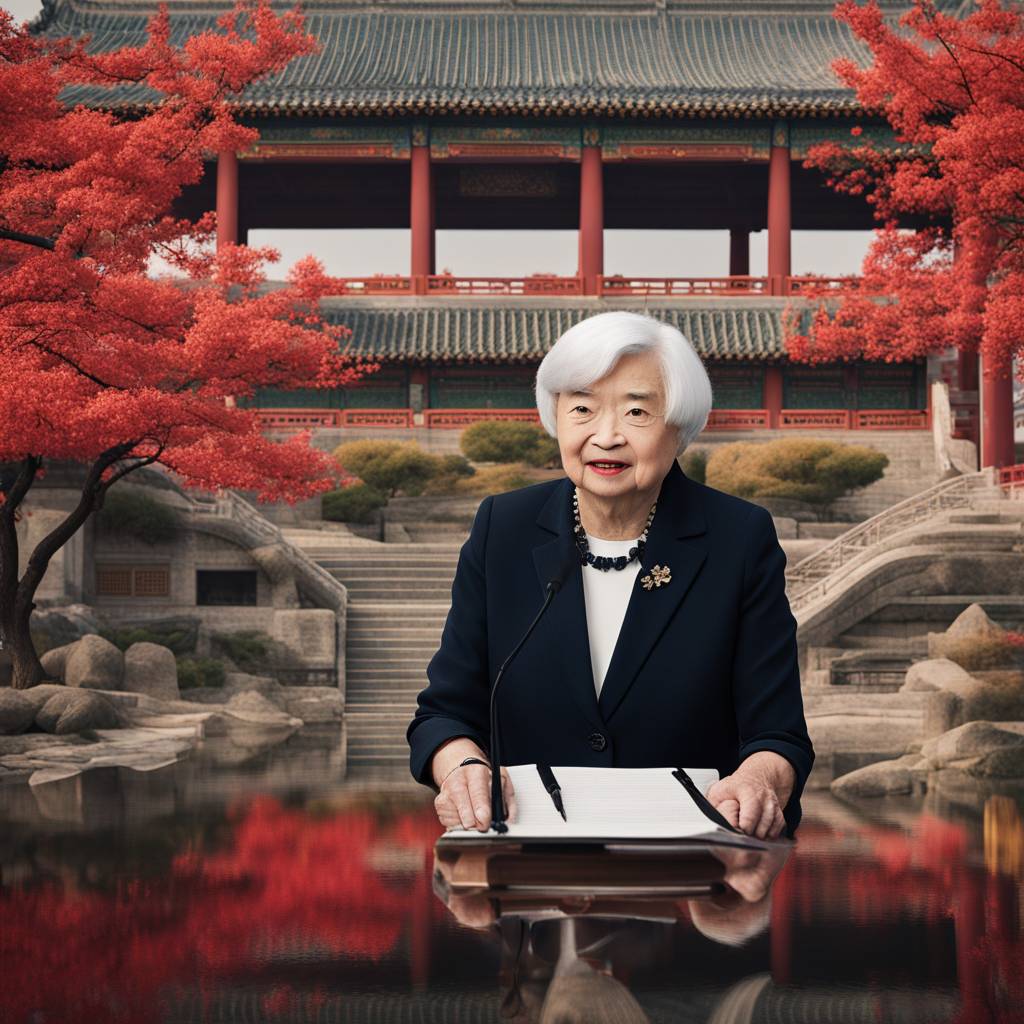US Treasury Secretary Janet Yellen is currently in China for her second visit as part of efforts to stabilize ties between the US and China. One major issue she is expected to address is the oversupply of Chinese goods in industries such as electric vehicles and solar panels, which has become a contentious issue in the lead-up to the US presidential election. Yellen has expressed concerns about China’s shift away from a market approach and towards state subsidies for manufacturing industries, causing worries about oversupply and its impact on global markets and local industries.
During her visit, Yellen has not ruled out the possibility of trade barriers if China does not address the issue of overcapacity. She emphasized the importance of competing on a level playing field without decoupling the economies of the two countries. The surge in China’s exports of EVs, solar panels, and batteries has created challenges for the US, which has invested heavily in reviving its manufacturing sector. Yellen’s visit comes shortly after a phone call between US President Joe Biden and Chinese leader Xi Jinping, their first conversation since a summit in California last November.
Yellen is expected to meet with several Chinese officials during her four-day visit to Guangzhou and Beijing, including Premier Li Qiang, Vice Premier He Lifeng, as well as finance and banking officials. There are doubts about whether Yellen will address the overcapacity issue in a direct manner, as she has previously avoided taking a strong stance on controversial issues during meetings with Chinese officials. The outcomes of the trip may be limited, according to analysts.
Trade tensions between the US and China are on the rise, with calls to raise tariffs on Chinese imports to level the playing field. Chinese leaders are focusing on boosting manufacturing for export to compensate for weak domestic demand. This strategy includes investments in industries like EVs and batteries as alternatives to the property sector, which has seen a decline. President Xi’s emphasis on new productive forces as a driver of growth, based on tech innovation, may further intensify trade conflicts, especially with the US approaching the presidential election.
Yellen’s discussions with Chinese counterparts will also include topics such as cooperation on countering illicit finance and global issues like climate change and financial stability. However, analysts do not believe Beijing will make significant changes to its economic policies. There is a perception that Beijing aims to reduce the role of US multinational companies in sensitive supply chains and strengthen control over China’s private sector and international companies, such as with recent national security legislation in Hong Kong. Overall, Yellen’s meetings are seen as maintaining the illusion of constructive engagement between the two superpowers rather than resolving contentious economic issues.


